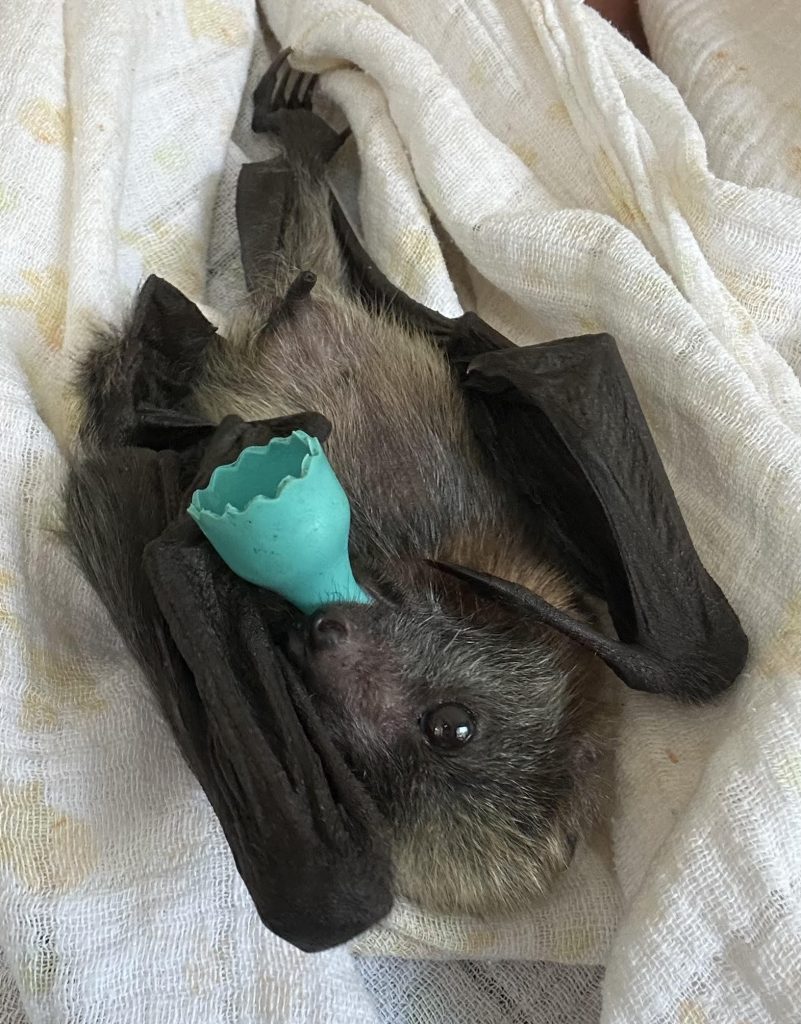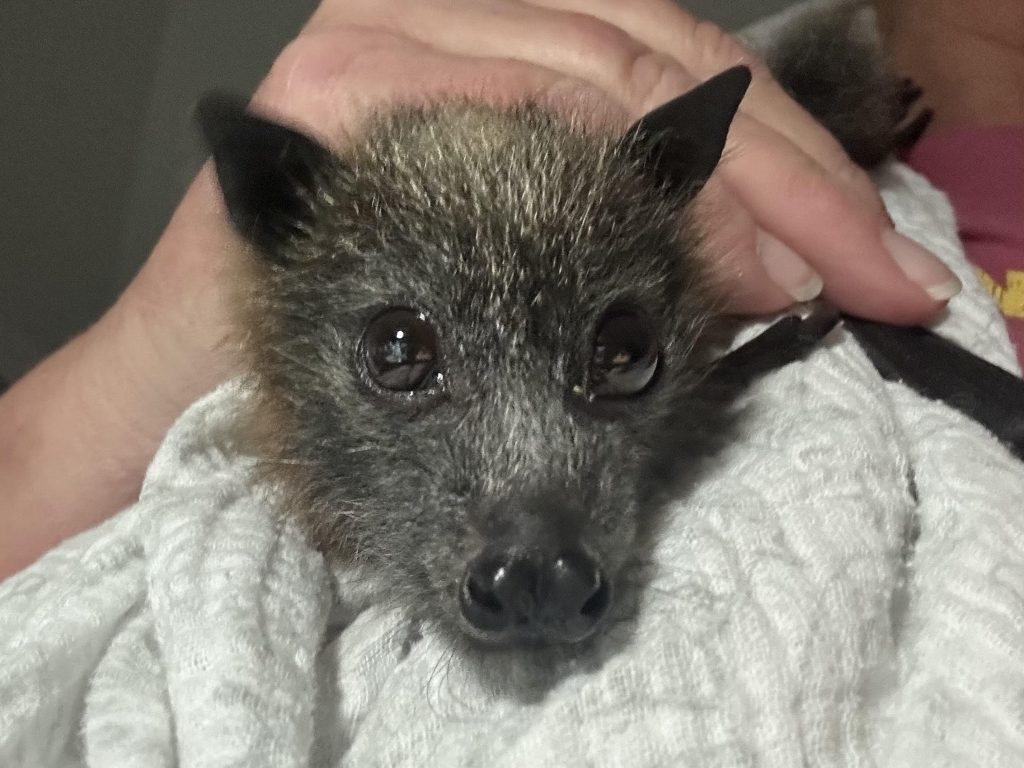
Susan Parrish Smith is an American-Australian wildlife carer dedicated to the rescue, rehabilitation, and release of flying-foxes. Living in the Sydney’s Northern Beaches for the last 13 years, Susan has years of experience and a deep passion for protecting these vital yet often misunderstood creatures. Susan plays a crucial role in their survival, providing around-the-clock care to injured and orphaned bats, helping them regain strength and independence before returning to the wild. Through her work, Susan also educates others about the ecological importance of flying-foxes, inspiring a new generation to appreciate and protect these keystone species essential to Australia’s natural environment.
Finn’s journey
On 14 October, I received a call from my daughter’s former Year Coordinator, Amy. She said her daughter, Millie, and her boyfriend, Henry, had found a baby bat on its dead mum on someone’s driveway… who do we call???
The back story begins years ago when Millie was still in primary school. In 2024, Millie finished her HSC and is now a beautiful young lady, inside and out! When she was younger, I was the “winter carer” for the adult flying-foxes who were not ready to be released or pregnant mothers who were kept back due to horrific injuries. By the time the pups were born, I had a total of 24 bats in care for five months. I invited Amy to bring Millie and her younger sister, Eva, to see the bats, experience what they’re about, and hopefully learn a few life-long lessons. They were enamoured, fascinated, and asked some great questions. I hoped they walked away understanding that the world desperately needs flying-foxes to survive and never to pick up a bat.
Fast forward to October 2024, and Amy told me that Millie did not touch the bat. She remembered what I told her years ago and proceeded to find an old plant pot, a long stick, and a towel. The pup grabbed the stick and Millie immediately placed the pup in the pot and put the towel over the baby.. I told Amy to send Millie and the bat to me so I could stabilise the little one.
When Millie and Eva arrived, they had a squirmy, screeching octopus in the pot. With a little TLC and a much-needed mumma roll, the pup turned out to be a 10-day-old little boy who weighed a whopping 74g.
I asked Millie and her boyfriend, Henry, to give the little pup a name. After a couple of days, they decided on Finn. Sweet boy Finn is now 65 days old, weighing 221g. He’s still slightly underweight, so his bottles contain goats’ milk, full-fat yogurt, and a pinch of High Protein Supplement. He’s started on fruit in the evenings, and I’m hoping he’ll begin to love the small pieces of apple and pear… though he’s not quite there yet!

Roxy’s journey
Six days ago, I received my second pup. She was found at the base of the Balgowlah Flying-Fox Camp without a mum in sight. My best friend from Texas, USA, asked if she could name a pup this year, so I texted her asking for a female name. She gave me Alice, Roxy, and Olive. The little girl hadn’t been with me for more than 12 hours, so I picked the one I liked, which was Olive. That lasted about 24 hours. Nope, this little sassafras girl needed an independent, strong female name, so she became Roxy on the third day. And she has no trouble filling those independent, strong stilettos.
Roxy is 2 days older than Finn and is also very underweight, so she’s receiving the “all the extras but the kitchen sink” bottles four times a day. Because Roxy came into care as a wild 9-week-old pup, she’s still settling into care. She’s still not sure if I’m a good thing, but she definitely loves the fruit served each night and the belly rubs she receives while drinking her bottle.
Looking ahead
Finn and Roxy will stay with me until their creche cage is ready at Lane Cove National Park. We’re projecting to open on 4 January to receive more than 35 pups from the Sydney Regional area. The 4 January crew will begin the first of many 4-week cycles to dehumanise the pups. Each group will be moved to a release cage far within the Centennial Park Flying-Fox colony to ensure all orphaned pups have the best chance to survive the 2024-2025 season and thrive.
Author: Susan Parrish Smith